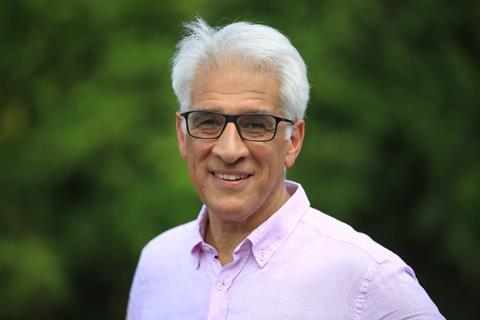
The founder of the Oasis Charitable Trust network of schools has said more investment is needed to help children whose families can’t afford school lunches.
It comes as a survey by the educational charity Sutton Trust found the number of children unable to afford lunch but aren’t eligible for free school meals had risen in more than half of England’s state schools. More than 50 percent of teachers questioned reported an increase in pupils going hungry this term.
Steve Chalke, who’s a Baptist minister, told YCW there are at least 2 million children in this situation:
“There are probably 2.5 million children affected. In reception year, there are universal free school meals for children, but once you get a little bit older, your eligibility for a free school meal is worked out on your family income.
“If your whole family income, including any Universal Credit that you get, is higher than £7,400 a year, then you’re not eligible for a free school meal. You can instantly see that there’s a huge gap between the number of young children that do get free school meals and the number of young people who are living in poverty.
“It’s grinding and it’s been said time after time that if you don’t eat, if you don’t have good nutrition, you can’t stay awake, you can’t concentrate, you’re more likely to be off school. It’s an extraordinary situation.”
Chalke qualified for free school meals as a child and understands there is a stigma attached to it:
“There is a campaign around giving free school meals to all children whose families are on Universal Credit. But in many European countries all children receive free school meals. If the same meal is provided, it’s stigma-free. It’s terrible if you’re one of those children that goes into the canteen and your parents have given you a little bit of money and some of the meals you just can’t afford. So we’ve got to do something about it. We’re in crisis, we need a proper school-meal strategy.
“If a child doesn’t eat well at school or is stigmatised, they won’t perform as well at GCSE. Kids who are poor don’t live as long, kids who are poor don’t find stable relationships as easily. The ongoing impact of the stigmatisation of children and their poor nutrition is lifelong. It also costs our economy in the end, so we should invest now. That would make sense for the whole of our society.”
The survey found that 74 percent of state-school teachers who took part in the poll said they had seen an increase in the number of pupils who were tired or unable to concentrate. More than half said more children were coming to school without adequate clothing, such as a winter coat.
Chalke said it’s vital the government devises a strategy to address the issue:
“The gap between the rich and the poor is growing all the time. People always say the system is failing, the system is broken. My contention is we don’t have a system. There’s never been a system. It’s not broken. It’s never existed. And because we don’t have a joined-up approach, we are failing so many families.”
In a statement, the Department for Education said: “Over a third of pupils in England currently receive free school meals in education settings and we are investing up to £24m in our national school breakfast programme, which provides free breakfasts to children in schools in disadvantaged areas.”











































